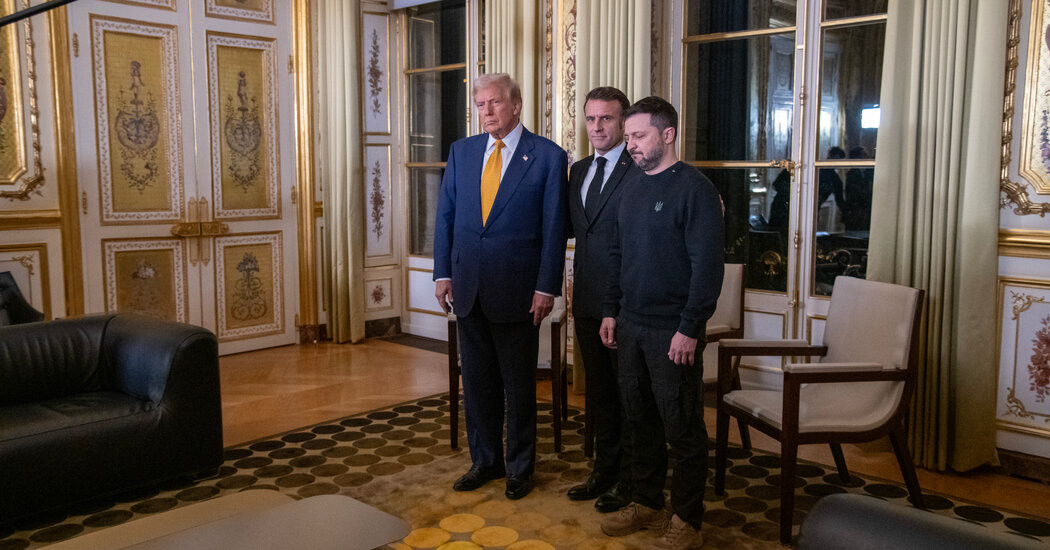

With Germany and France both in political turmoil, the new administration of Donald J. Trump will begin at a time of instability for the continent.
When President Volodymyr Zelensky of Ukraine met European leaders for dinner in Brussels on Wednesday, the shadow of President-elect Donald J. Trump hung over the gathering. But it is not just Mr. Trump’s return to the White House that has scrambled Europe’s response to the war in Ukraine.
It is also the political disarray across the continent — a wave of instability that is depriving Europe of robust leadership at the very moment that Mr. Trump is challenging its deeply felt support for Ukraine and its hard-fought resistance of Russian aggression.
From Germany, where the government of Chancellor Olaf Scholz just collapsed, to France, where President Emmanuel Macron has been gravely weakened by months of domestic political turmoil, Europe’s big powers are on the back foot as they confront a resurgent Mr. Trump.
“We’re not well equipped, that’s for sure,” said Wolfgang Ischinger, who served as Germany’s ambassador to the United States during the Iraq War. “It is a horribly bad moment for my own country to be in the midst of an election campaign, with a rather polarizing political debate.”
Mr. Ischinger, who chaired the Munich Security Conference until 2022, said he was optimistic that Germany would emerge with a new government, likely led by the conservative candidate, Friedrich Merz, that could engage constructively with the Trump administration.
Mr. Macron, for all his domestic travails, appears determined still to play an energetic role in shaping Europe’s response to the war. He recently floated the idea of sending a European peacekeeping force to Ukraine, though it found little immediate support from other European officials.